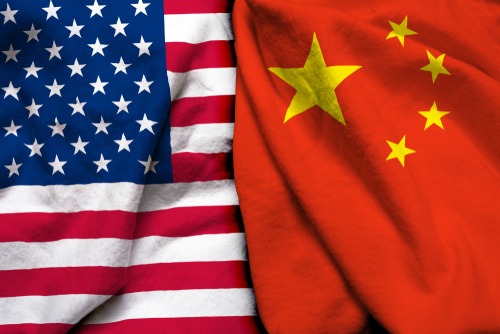
The U.S. Commerce Department recently added 37 Chinese entities to the Export Administration Regulations (EAR) trade restriction list, blacklisting them for a wide range of national security concerns.
The reasons ranged from support for the spy balloon that flew over the United States last year, to attempts to obtain American technology in support of China’s quantum technology capabilities, to assisting Russian aggression against Ukraine. In all, 11 such entities were accused of connections to last year’s balloon incident, whereas the others – companies, research institutions and more – were restricted from doing business with or obtaining goods from U.S. firms due to links to Chinese quantum efforts, nuclear programs, or the export of controlled items to Russia.
“The spy balloon was a violation of American sovereignty and these related Entity List additions are a welcome although overdue step, as are the quantum-related listings,” U.S. Rep. John Moolenaar (R-MI), chair of the House Select Committee on the CCP, said after the announcement. “BIS must keep the momentum going and continue listing companies that are helping the Chinese military and the CCP’s human rights abuses. This should start with PRC biotech companies like WuXi Apptec, MGI, all of BGI’s subsidiaries, as well as PRC drone firms like Autel. The CCP constantly seeks new ways to bypass our export controls, and we must be equally as adaptive.”
Quantum acquisition efforts, the department alleged, could bring with them substantial military applications and pose a threat to U.S. national security. The balloon-related crackdown built on a crackdown of Chinese aerospace programs undertaken in February 2023.
“Today’s action is another decisive step in addressing challenges posed by the People’s Republic of China and its military modernization,” Under Secretary of Commerce for Industry and Security Alan Estevez said. “We must remain vigilant in our efforts to prevent entities such as these from accessing U.S. technologies that could be used in ways that harm our national security.”
On top of the aforementioned, the department also slapped four new entities on the list for either acquiring or attempting to acquire items from the United States that would be used for the Chinese military’s unmanned aerial systems. Regardless of the reasoning, adding any of these entities to the trade blacklist allows the U.S. government to control export of sensitive technologies and, in the government’s view, to keep those advancements from falling into the wrong hands.
“Preventing Chinese companies from acquiring technologies that enable the People’s Republic of China’s quantum, drone, and high-altitude surveillance programs is critical to protecting U.S. national security,” Matthew Axelrod, Assistant Secretary for Export Enforcement, said. “Adding companies to the Entity List is a key tool that the Disruptive Technology Strike Force leverages to prevent U.S. advanced technology from misappropriation.”
These actions also built on efforts by the Disruptive Technology Strike Force, which Commerce and the Department of justice run to keep technological assets from acquisition by adversarial nations and improve supply chains.




